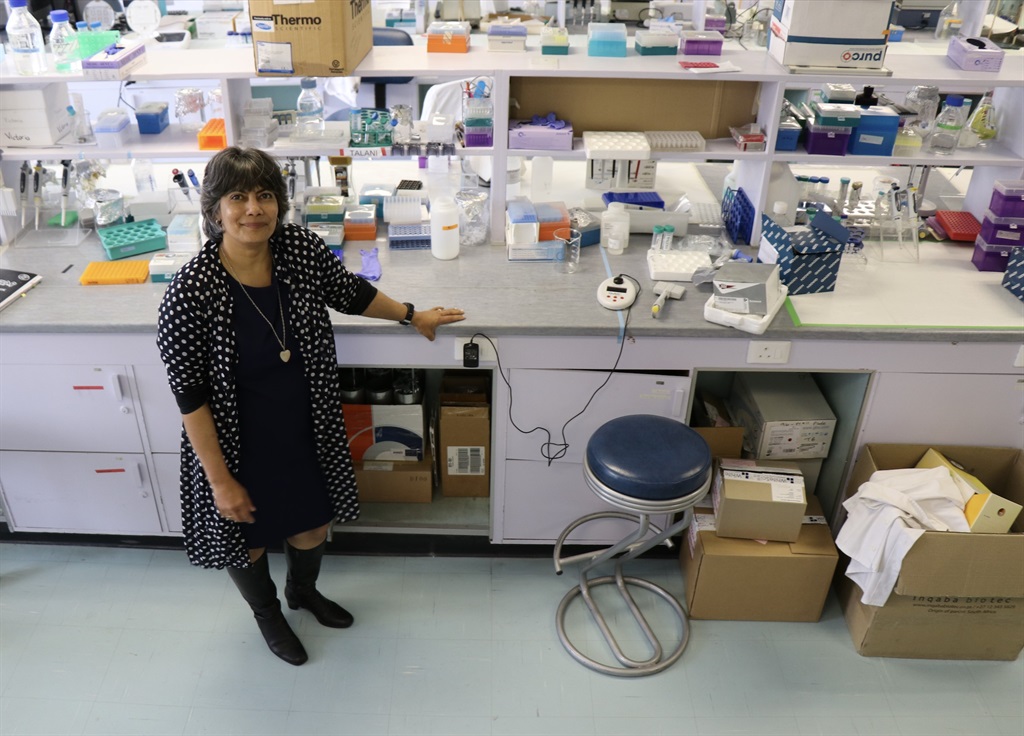
After growing up on the Cape Flats in Cape Town during apartheid, Professor Soraya Bardien has managed to carefully carve a reputation for herself as one of the world’s leading researchers in the field of genetics.
Last year Bardien was honoured with an award for distinguished scientist in the field of natural (physical and life) and engineering sciences by the department of science and technology at the annual Women in Science Awards, an initiative run by the department to honour women who are spearheading innovation in their various fields.
As an associate professor at Stellenbosch University in the field of human molecular genetics, Bardien also works closely with students who are as keen as her to learn more about genetics.
“I grew up on the Cape Flats in Cape Town, an area set aside by the apartheid government for so-called coloured people. Most of the people living in the Cape Flats were quite poor and gangsterism was rife. I was the youngest of six children. My dad worked but my mum stayed at home to take care of the children and the home. We were relatively poor but coped with friends and neighbours helping each other out when there was a need.”
After being accepted into the University of Cape Town, she completed her BSc and BSc honours degrees in microbiology before working in a diagnostic state laboratory for two years.
“I chose to work as I needed a break from the studying and wanted to earn some money. But while working, I realised that I missed the excitement of research, so I gave up a permanent job to return to study a MSc degree part time and worked as a research assistant part-time. My MSc was later upgraded to a PhD, and I graduated with a PhD in human molecular genetics from the University of Cape Town in 1999.”
Bardien dispels the myth that one needs to be a nerd to be a scientist; hard work counts just as much.
“I think one of the myths are that scientists are boring and unsociable people. Although we work hard and have to make many sacrifices to meet timelines and deadlines, we also like to spend time relaxing with family and friends. So my message is that you do not need to be a nerd to be a scientist.”
Bardien, who enjoys working with her students, encourages them to also work independently.
“I enjoy working with students, seeing them grow and develop. I encourage my students to take the initiative in their projects and to work independently so that when they leave my laboratory, they can work on their own in almost any environment.”
Despite her immense success, Bardien has not been immune to assumptions that people make about women in the sciences.
“I think most women in senior positions have been discriminated against at some stage or other in their careers. A few times, when people hear that I work in the medical field they ask me, ‘So, are you a nurse?’ I think I face the usual challenges that many women face – not being taken too seriously, one’s opinions and decisions not being respected and some people take advantage as they think that I am ‘too soft’. I try not to worry about this though as life is too short to dwell on the negative and the things that are largely beyond one’s control.”
Bardien has been a part of Stellenbosch university for nine years, when she spearheaded a research group investigating the genetic basis of Parkinson’s disease.
“This is a disorder in which brain cells in a certain part of the brain die. Once this starts, the disease process cannot be stopped and the symptoms [including problems with movement and balance as well as psychiatric problems such as hallucinations] worsen over time. In my group, we try to identify gene defects that cause Parkinson’s in South African patients and once we identify the mutation, we try to determine how it causes the disease.”
She says that South African DNA is unique, and that gene defects that have been identified overseas are not common in our own populations.
“This was unsurprising as the ancestry of South Africans, generally, are so unique, so their DNA is also unique. Also, when we find defects, we obtain a tiny piece of skin from the affected individual and grow up a type of cell known as a fibroblast. This cell type has been used by many others in the field as a model cell to study Parkinson’s Disease. What we found in these patients, is that their mitochondria, which are tiny structures in every cell that work as the ‘batteries’ producing energy for the cell to function, do not work well. We and others think that defective mitochondria are an important part of what goes wrong in the cell to cause Parkinson’s.”
Bardien thinks in addition to having the Women in Science Awards, the department of science and technology should also look at establishing a Girl in Science Award for school pupils who excel in the fields of science and technology at their schools.
“Every year in South Africa there is a ‘Take a girl child to work’ day. This year it will take place on May 30. I would suggest to the pupils to search the internet for possible mentors for who would be willing to host them on this day. Who knows, they may take an interest in you and end up helping you further with your career.”
* February 11 is International Day of Women and Girls in Science
| |||||||||||||
| |||||||||||||




 Publications
Publications
 Partners
Partners








